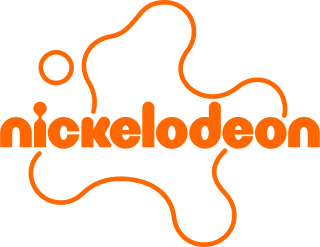
Privacy is the ability of an individual or group to seclude themselves or information about themselves, and thereby express themselves selectively.

The Children's Online Privacy Protection Act of 1998 (COPPA) is a United States federal law, located at 15 U.S.C. §§ 6501–6506.

The Entertainment Software Rating Board (ESRB) is a self-regulatory organization that assigns age and content ratings to consumer video games in North America. The ESRB was established in 1994 by the Entertainment Software Association, in response to criticism of controversial video games with excessively violent or sexual content, particularly after the 1993 congressional hearings following the releases of Mortal Kombat and Night Trap for home consoles and Doom for home computers. The industry, pressured with potential government oversight of video game ratings from these hearings, established both the IDSA and the ESRB within it to create a voluntary rating system based on the Motion Picture Association of America film rating system with additional considerations for video game interactivity.
The right to privacy is an element of various legal traditions that intends to restrain governmental and private actions that threaten the privacy of individuals. Over 185 national constitutions mention the right to privacy. On December 10, 1948, the United Nations General Assembly adopted the Universal Declaration of Human Rights (UDHR), originally written to guarantee individual rights of everyone everywhere; while the right to privacy does not appear in the document, many interpret this through Article 12, which states: "No one shall be subjected to arbitrary interference with their privacy, family, home or correspondence, nor to attacks upon his honor and reputation. Everyone has the right to the protection of the law against such interference or attacks."

Nick.com is a website owned and developed by Nickelodeon. The website previously served as an online portal for Nickelodeon content, and offered online games, video streaming, radio streaming and individual websites for each show it broadcasts. It now promotes the Nick mobile app which replaced it. Nick.com has received positive critical reaction and various awards, including a Webby in 2003. Positive praise has also been received because of the steps taken by the website to protect user privacy. Visits to the domain outside the United States are redirected to YTV in Canada, Nick.de in Germany or to the domestic network site of the visiting IP's nation or region due to programming licensing issues between territories.

Freedom of information is freedom of a person or people to publish and consume information. Access to information is the ability for an individual to seek, receive and impart information effectively. This sometimes includes "scientific, indigenous, and traditional knowledge; freedom of information, building of open knowledge resources, including open Internet and open standards, and open access and availability of data; preservation of digital heritage; respect for cultural and linguistic diversity, such as fostering access to local content in accessible languages; quality education for all, including lifelong and e-learning; diffusion of new media and information literacy and skills, and social inclusion online, including addressing inequalities based on skills, education, gender, age, race, ethnicity, and accessibility by those with disabilities; and the development of connectivity and affordable ICTs, including mobile, the Internet, and broadband infrastructures".
Center for Democracy & Technology (CDT) is a Washington, D.C.-based 501(c)(3) nonprofit organisation that advocates for digital rights and freedom of expression. CDT seeks to promote legislation that enables individuals to use the internet for purposes of well-intent, while at the same time reducing its potential for harm. It advocates for transparency, accountability, and limiting the collection of personal information.
Internet privacy involves the right or mandate of personal privacy concerning the storage, re-purposing, provision to third parties, and display of information pertaining to oneself via the Internet. Internet privacy is a subset of data privacy. Privacy concerns have been articulated from the beginnings of large-scale computer sharing and especially relate to mass surveillance.
BrainPop is a group of children's educational websites based in New York City. It hosts over 1,000 short animated movies for students in grades K–8, together with quizzes and related materials, covering the subjects of science, social studies, English, math, engineering and technology, health, arts and music. In 2022, Kirkbi A/S, the private investment and holding company that owns a controlling stake in Lego, acquired BrainPop.

Danah boyd is a technology and social media scholar. She is a partner researcher at Microsoft Research, the founder of Data & Society Research Institute, and a distinguished visiting professor at Georgetown University.

Digital footprint or digital shadow refers to one's unique set of traceable digital activities, actions, contributions, and communications manifested on the Internet or digital devices. Digital footprints can be classified as either passive or active. The former is composed of a user's web-browsing activity and information stored as cookies. The latter is often released deliberately by a user to share information on websites or social media. While the term usually applies to a person, a digital footprint can also refer to a business, organization or corporation.

The Family Online Safety Institute (FOSI) is an international nonprofit organization. It is registered as a 501(c)(3) tax-deductible nonprofit charity in the United States and a registered charity in the United Kingdom. FOSI was founded in February 2007 by Stephen Balkam, who had created the Internet Content Rating Association (ICRA). FOSI is chaired by Dave Pierce, Vice President of Public Affairs, NCTA.

Sonia Livingstone is a leading British scholar on the subjects of children, media and the Internet. She is Professor of Social Psychology and former head of the Department of Media and Communications at the London School of Economics and Political Science. While Livingstone’s research has evolved since the start of her career in the 1980s, her recent work explores media and communication in relation to society, children and technology. Livingstone has authored or edited twenty-four books and hundreds of academic articles and chapters. She is known for her continued public engagement about her research areas and has advised the UK government, European Commission, European Parliament, UN Committee on the Rights of the Child, OECD, ITU and UNICEF, among others, on children’s internet safety and rights in the digital environment. In 2014, Livingstone was awarded the title of Officer of the Order of the British Empire (OBE) "for services to children and child Internet safety".
Brown v. Entertainment Merchants Association, 564 U.S. 786 (2011), was a landmark decision of the US Supreme Court that struck down a 2005 California law banning the sale of certain violent video games to children without parental supervision. In a 7–2 decision, the Court affirmed the lower court decisions and nullified the law, ruling that video games were protected speech under the First Amendment as other forms of media.

James Pearson Steyer is an American civil rights attorney, professor, and author. He founded Common Sense Media, an organization that "provides education and advocacy to families to promote safe technology and media for children."
Everloop was an online social media site specifically made for children ages 8–13.

MediaSmarts is a Canadian non-profit organization and registered charity based in Ottawa, Ontario, that focuses on digital and media literacy programs and resources. In particular, the organization promotes critical thinking via educational resources and analyzes the content of various types of mass media.

Securly, Inc. is an educational software company based in San Jose, California and incorporated in Delaware. It develops and sells internet filters, and other technologies which primary and secondary schools use to monitor students' web browsing, web searches, video watching, social media posts, emails, online documents, and drives. It was founded in 2013.
Sharenting is a portmanteau of "sharing" and "parenting" describing the practice of parents publicizing a large amount of potentially sensitive content about their children on internet platforms. While the term was coined as recently as 2010, sharenting has become an international phenomenon with widespread presence in the United States, Spain, France, and the United Kingdom. As such, sharenting has also ignited disagreement as a controversial application of social media. Detractors find that it violates child privacy and hurts a parent-child relationship. Proponents frame the practice as a natural expression of parental pride in their children and argue that critics take sharenting-related posts out of context.

A kid influencer is someone under the age of 18 who has built or is building a presence on social media platforms creating content to generate views and engagements, that is often sponsored. Kid influencers operate in a similar fashion to adult influencers; they share their hobbies and personal activities with their audiences, while also marketing products that align with their brand through paid partnerships. Many social media platforms have an age minimum requiring users to be at least 13 years of age or older to hold their own accounts. This requirement results in many of the pages being run alongside the parent/guardian of the child when they are under the age requirement.













